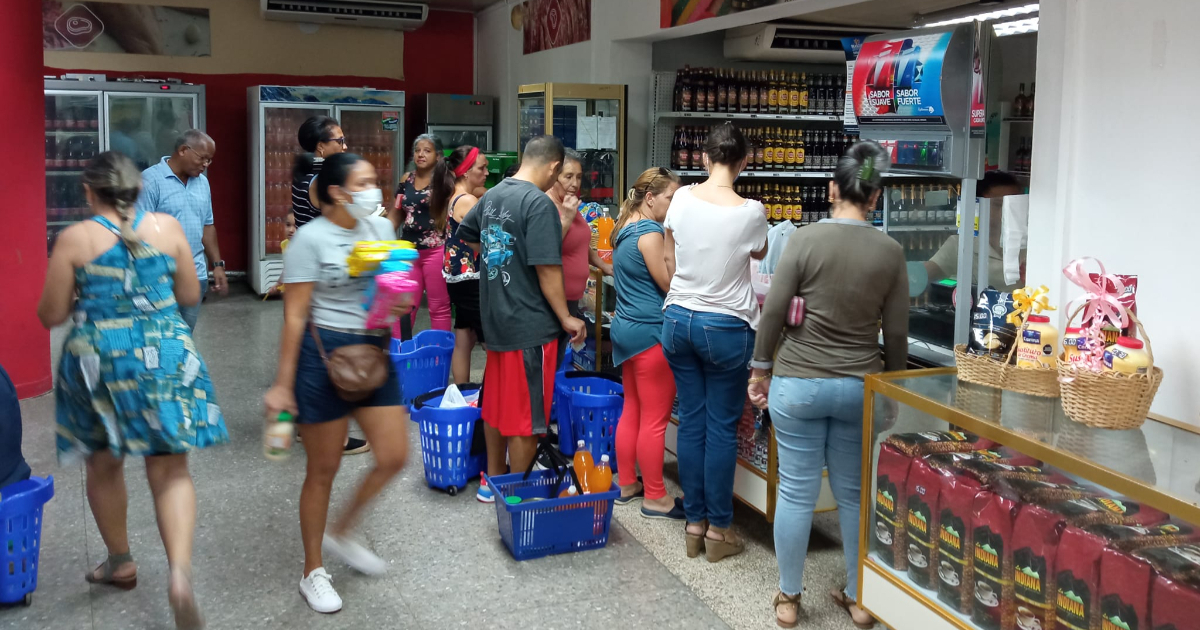
Related videos:
The renowned Cuban comedian Otto Ortiz criticized on his social media what he called an unjust measure by the government to start the year: the refusal of some stores to accept payments in MLC.
On Facebook, the comedian expressed his dissatisfaction: "The first one of 2025: there are stores where you can't pay with MLC, only with Clásica, Visa, Mastercard, or cash in dollars."
The "surprising measure" led the comedian to reflect on his social media: "My question is: aren't the MLC just dollars that we give to the State? So, what do we do with them? Can private businesses also choose to charge only in those currencies?"
Although Ortiz did not specify which currency collection stores are operating this way, in the comments section, Humberto McClarin Barrios recounted: "My parents experienced the same thing yesterday at the new store Súper Mercado de 70 that was inaugurated at the Gran Muthu hotel. What a lack of respect! Now we can't even shop in MLC at those stores, so tell me, where are we supposed to go?"
Omar Milanés also shared a similar story: “My wife carried the products to the checkout. You wouldn’t want to see the look on her face. It turns out that since fuel is sold in USD, everything else got ‘contaminated’.”
A person named Asowuano Kmvv shared their experience: "Well, Otto won't be the first in 2025. Today, it happened to me here on the key. I went to pay at the store, and they hit me with that: dollars, Visa or MasterCard. And I asked myself: 'What about the MLC? What are they, and why did I deposit dollars?' The new year is starting off hot."
However, in reality, the measure is not as "surprising." The Cuban government approved a document that regulates the "partial dollarization of the economy," as announced by Prime Minister Manuel Marrero Cruz during the fourth ordinary session of the National Assembly.
This measure, which reflects the growing influence of the US dollar in the country, aims to reorganize key sectors of the economy while attempting to manage the impact of the informal currency market.
The partial dollarization scheme will cover the following sectors: wholesale and retail trade in approved foreign currencies; and payment of tariffs and services related to foreign trade for non-state management forms.
Additionally, cash in dollars will be accepted in strategic sectors such as tourism, Casas del Habano, pharmacies, opticians, international clinics, and airports. Furthermore, there will be payments in foreign currency to agricultural producers who replace imports and to those who manufacture exportable goods.
According to the regime, this regulation will also provide greater flexibility in the use of foreign currency for specific economic activities, such as tourism and foreign trade, which are key sectors for generating income amid the economic crisis.
Frequently Asked Questions about Dollarization and the Use of MLC in Cuba
Why have some stores in Cuba stopped accepting MLC?
Following a recent measure by the Cuban government, some stores have stopped accepting MLC as a form of payment and now only accept cash dollars or international cards like Visa and Mastercard. This decision is part of a partial dollarization process aimed at reorganizing key sectors and controlling the informal foreign exchange market.
What is the partial dollarization of the Cuban economy?
The partial dollarization of the Cuban economy is a system implemented by the government that allows the use of dollars and other currencies in specific sectors such as wholesale and retail trade, as well as in the payment of tariffs and services related to foreign trade. This measure reflects the increasing influence of the dollar in the country and aims to attract more foreign currency.
How does this measure affect Cubans who only have MLC?
The measure significantly impacts Cubans who only have MLC, as many state-run stores have stopped accepting this currency, limiting their purchasing options. This situation could exacerbate economic inequality by excluding those without access to dollars or international cards.
What impact has this strategy had on the informal currency market in Cuba?
The strategy of partial dollarization has maintained a relative stability in foreign exchange prices in the informal Cuban market. Despite this recent stability, the economic crisis and shortages of basic goods continue to impact the purchasing power of Cubans.
Archived in: